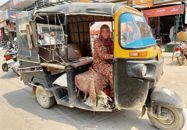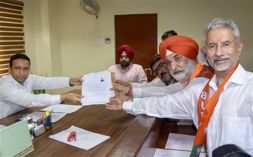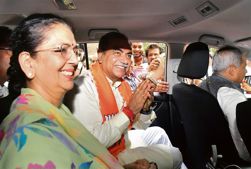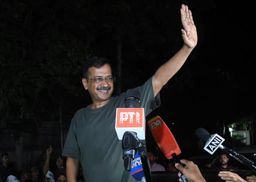
Aditi Mittal
Ashima S Batish
Where does sexuality feature in the debate of gender equality? Outcry for equal wages, education, employment — the social part of equality — gained decibels but the intimate part of it, the explicit side was seldom voiced. Especially so in the Indian context — where a man gains manhood and a woman loses virginity with their first sexual experience, where buying condoms is only associated with men even as Sunny Leone advertises the contraceptive, where desire continues to be a man’s privilege and a woman’s test of character.
The call for equality of sexual expression is majorly a theory, rarely put into practice. Fortunately on those rare occasions too, it reverberates long enough to cast some change. It triggers in the form of a video posted on YouTube, which has a girl asking for condoms at chemist shops, that receives 45 lakh views, in the form of a gig by stand-up comedian Aditi Mittal on sanitary napkins that notches up more than a lakh views in a month’s time and gets people talking about menstruation and in the form of exclusive condom shops by a leading contraceptive brand.
Tiny blips these may be, but these make you pause and review modern society’s claim to modernity. “One conversation at a time, one stand-up performance, one documentary; what is important is to constantly nudge towards change, which make both sexes aware of their sexual rights,” says Aditi Mittal, who knew that if not anything else, the gig on sanitary pads will help people make peace with the biological process of women menstruating. “Why do even women have to be secretive about a natural process like menstruation, or even their desires? Until they voice their opinion, how will men listen?” The overwhelming response she got from the audiences validates her belief that we are in for a change. “Nobody did a haw! Likewise, if women’s sexual rights are talked about, equality won’t be just an imaginary concept.”
A plethora of videos posted on YouTube on — women buying condoms and talking about carnal needs — is changing the rules of sexuality in India. A video of women talking about the strictly censored word fetched 58,77,000 views on YouTube. The faces aren’t blurred — for boys do it, so do girls. Subsequently many videos have the same undercurrent, “Everybody does it. It is a basic physiological need.” Directives of decency coming from the ‘guardians’ of culture are given a miss, so are the diktats of those who set timetables and dress code for women.
In the literary sections, authors are doing their bit by writing erotica, a genre less-explored. The cue, of course, was taken from 50 Shades of Grey. The chain reaction it set off has been worth it. Sita’s Curse, Play With Me, Losing My Virginity and Other Dumb Ideas, to begin with, changed the narrative of Indian fiction by elaborating on sex as the body’s requirement. Rosalyn D’Mello’s A Handbook for My Lover has been critically acclaimed for its play of words and explicit storyline. Words aren’t minced; emotions are translated into the language they best deserve. “With the recent spate of sensitive advertising, a lot of otherwise taboo subjects are finally being openly discussed. Campaigns like #Touchthepickle, or the most recent #GirlUninterrupted that subvert the awkwardness of menstruation, condom ads that privilege women’s rights to desire, and ads featuring same-sex couples are aiding the cause.”
She rues the fact that society has failed to comprehend what equality stands for. At least, to an extent, it gives into women’s social and financial needs, but the corporeal side of it isn’t even a part of the scheme of things. She elaborates, “Equality has to be the touchstone of any society that dares call itself modern: whether it’s gender equality or equality in terms of expressing one’s sexuality. Men and women are both sexual beings. Why it is so difficult for people to wrap their heads around that fact?”
Indian patriarchal society deprived women of their many basic rights and instead of lodging a collective protest, a majority of women gave in. Virginity became a virtue and hymenoplasty a solution to the loss of it. Type hymenoplasty, a popular surgical procedure to restore a woman’s ‘chastity,’ and the search engine throws up results of where all the procedure is available in India at comparative prices. The practice of the reconstruction of the hymen reinforces the significance of virginity.
Rumina Sethi, Chairperson of the English Department, Panjab University, says, “Chastity is still the supreme virtue and as long as it is regarded to be so, women will not be able to talk freely about their sexual desires. Women opting for hymenoplasty and terming it as a ‘gift’ to their husbands on anniversaries says it all.” However, a spurt of videos of girls asserting their sexual rights, she says, raises hope for change. “In the 18th century, an ordinary intervention, Vindication of the Rights of Woman by British feminist Mary Wollstonecraft triggered a huge feminist movement. These videos and blog entries may be akin to a drop in the ocean but change will eventually happen.”
There is a long way to go. Long enough that it will take many years till sexual equality becomes a reality. Call for change is only concentrated in urban India, with the rural counterpart much on the periphery. And then, there are other hurdles like body shaming, where women are criticised for how they look. Till these trivial issues aren’t treated as trivial, the important will not get due importance.



























